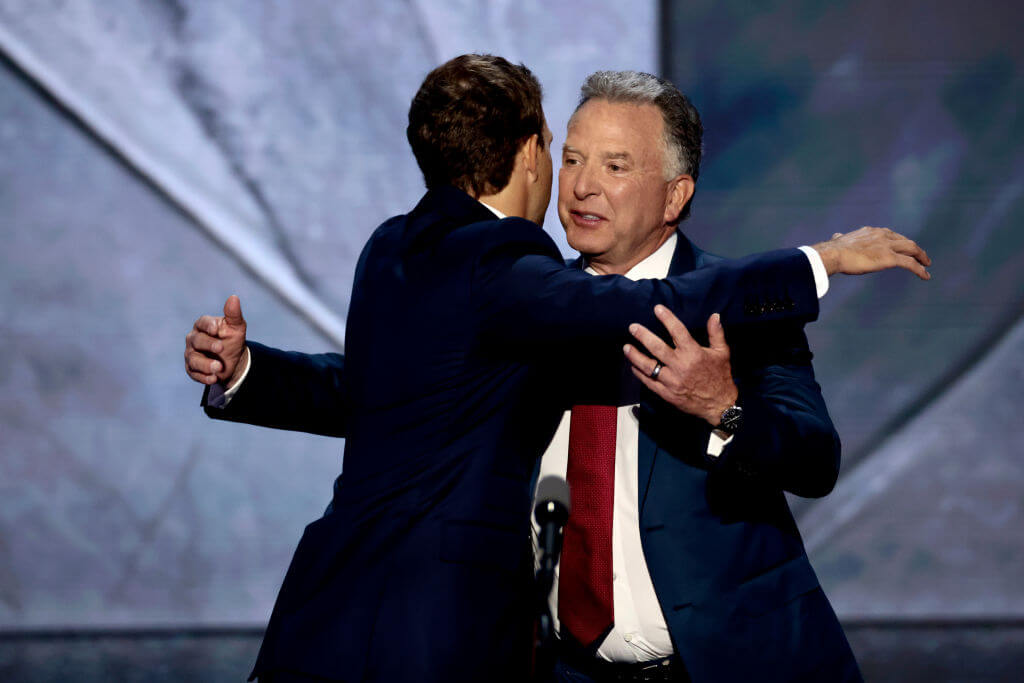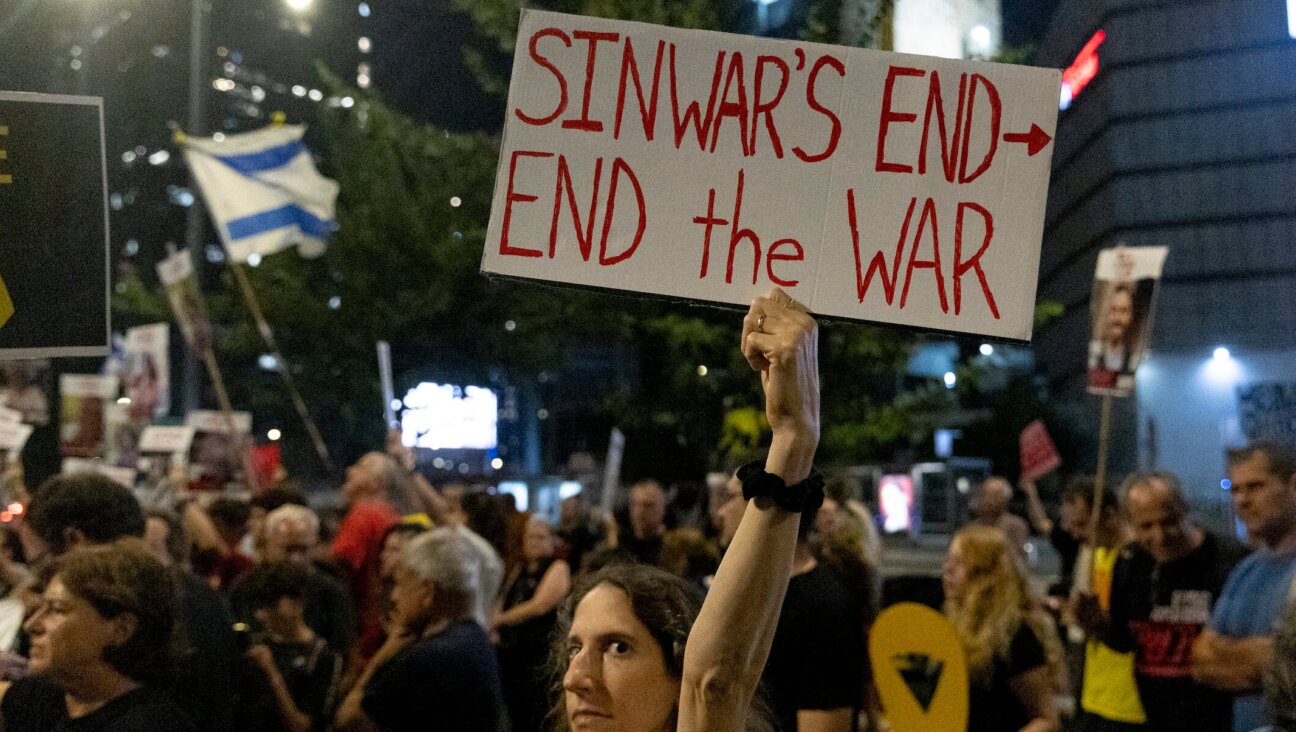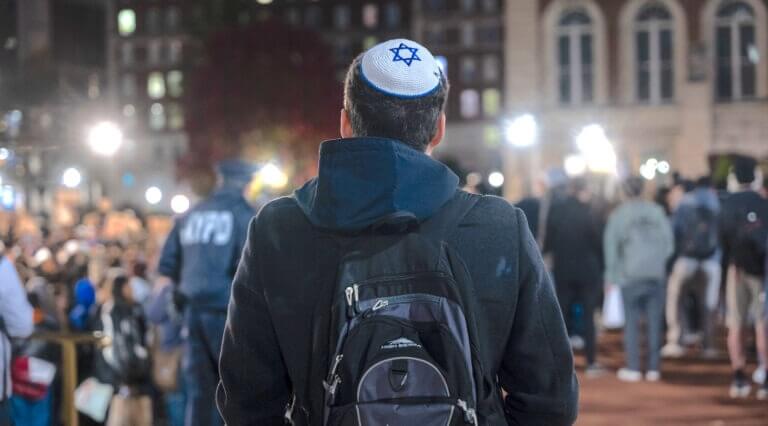America Gets a New Tocqueville
Following in the footsteps of his countryman, famed French philosopher Bernard-Henri Lévy — or BHL, as he is widely known — will release “American Vertigo: Traveling America in the Footsteps of Tocqueville,” the result of a yearlong journey through America. Though Lévy is careful not to compare himself with Tocqueville — the 19th-century French aristocrat who turned an assignment on the American penitentiary system into the seminal tract “Democracy in America” — he certainly hopes that “American Vertigo” (Random House) will make its mark as an original essay on contemporary America, seen through the loving yet demanding eyes of a French intellectual.
The idea to send Lévy across America was the brainchild of Cullen Murphy, senior editor of The Atlantic Monthly. The magazine ran a five-part series of his writings over the last year. The book’s first part is a series of snapshots mixing Lévy’s impressions and thoughts, from America’s cosmopolitan coastal cities to its rural heartland, from its prisons to its mega-churches, from its destitute inner cities to its posh suburbs. He met fellow writers Norman Mailer and James Elroy, sparred with such neoconservative luminaries as Richard Perle and William Kristol, and plunged into the fury of the 2004 presidential campaign. Lévy also engaged with the country’s ideas and beliefs, from patriotism to militarism, from creationism to neoevangelism. In the second part of the book, he lets all these disparate people, places and ideas coalesce into a deeper reflection on America, a sociological-philosophical essay on the state of the United States.
Last month, Lévy invited Forward reporter Marc Perelman to his richly decorated apartment in the “Quartier Latin” neighborhood of Paris for a chat about his road trip and for a sneak peek into the book that emerged from it.
* * *|
Marc Perelman: You have become part of a small clique of French intellectuals known as the anti-anti-Americans. So what happens when an anti-anti-American visits America? Does he change his opinion?
Bernard-Henri Lévy: I began my journey feeling pro-American and I finished it feeling the same, with a “Fasten your seatbelt” sign flashing on a few occasions. I thought I knew America well, but I must confess I was surprised all the time. It is a crazy and at times revolting country, especially when you look at poverty or crime.
MP: But if you had to compare your old country with America, what would you say?
BHL: It seems to me that the American melting pot works better than our famed republican integration model.
MP: In your book, you express amazement at America’s religious practices, not only the weight of God in public life — not really a surprise for someone hailing from largely secular France — but also the lack of transcendence, God as a good buddy. Is this also a Jewish issue?
BHL: This kind of neoevangelism has always been the enemy of the Jews. When a person thinks God is with him when he mows his lawn, God is his old pal or God is in his diet, this is idolatry and paganism. The Jewish people invented transcendence, the distant sacred. A God that talks little and rarely. But the neoevangelists are talking all the time; it’s like an unending whisper! This is why we should beware of them on a theological plane — because we can’t debate with them.
MP: In your book, you mention how American Arabs seemed to be trying to replicate the successful social ascent and political clout of the Jewish community.
BHL: It is encouraging to see the American Arab community want to emulate Jews. In France, many of them are still waging a battle to see who is the main victim of history, unfortunately.
MP: American Jews seem to be doing well, don’t they?
BHL: I feel a malaise for American Jews and Jews in general. Just look at how we are told with absolute certainty that the key problem in the world today is the Middle East. But it’s untrue; the epicenter is much further east. I’m ready to bet that the day you will have a Palestinian state and Israeli-Arab peace, it will not eliminate a single terrorist. In my eyes, this causal link between the Middle East and terrorism has something to do with the “warmongering Jew” theme. This is very dangerous, and we should not accept this logic. It is false and it is dangerous.
MP: But at least the Jews in America can count on the evangelists….
BHL: This is my second malaise. The alliance with the Christian right is an unnatural one. The Christian right does not like Jews and only embraces Israel in anticipation of Armageddon; we know the story. But this is not what Jews and Israel are about. Israelis are not victims or martyrs. They are a normal people. So let’s keep our eyes open; let’s not see a communion in what is in fact a misunderstanding that could last for a while. I would like Jews to sleep, but with their rifle.
MP: A couple of years ago, you told the Forward the neoconservatives had hijacked George Bush’s brain and steered him to war in Iraq. But it now seems that you have a certain liking for them. Is this one of your surprises?
BHL: I did my homework, I met with the neocons, I listened to them. I am still in total disagreement with them, but I understand them better. What touches me is that we have a shared biography on issues such as anti-totalitarianism, the support for Bosnia or the fight against radical Islamism. So while we differ, I now see this more as a family feud.
MP: Beyond the war in Iraq, which you have always opposed, what is this family feud about?
BHL: It is both philosophical and political. Philosophically, they believe in democratic messianism, thus reprising the old Marxist belief that history has a meaning. I am certainly more pessimistic and more political. Politically, I can totally understand that you lend your support on certain issues even if you do not support a government. But what I find revolting about them is their endorsement of all of Bush’s agenda. Support one idea, but don’t toe the line! In doing so, you forswear your freedom of thought. I am very shocked that in order to promote the war in Iraq, you end up supporting the death penalty, the gun lobby, a larger role for religion, etc.
MP: It seems to me that you are becoming more Jewish as the years progress….
BHL: I am more Jewish. I am reading lots of religious texts, the philosophers of the 19th and 20th centuries for a book on contemporary Jewish thought. I have always identified with Israel and continue to do so. But this doesn’t mean that I am withdrawing from the world and into a closed community. My way of being Jewish is to recount the forgotten wars of the world, to promote a moderate Islam or Afghan women. So being more Jewish is being more open.
A message from our Publisher & CEO Rachel Fishman Feddersen

I hope you appreciated this article. Before you go, I’d like to ask you to please support the Forward’s award-winning, nonprofit journalism during this critical time.
We’ve set a goal to raise $260,000 by December 31. That’s an ambitious goal, but one that will give us the resources we need to invest in the high quality news, opinion, analysis and cultural coverage that isn’t available anywhere else.
If you feel inspired to make an impact, now is the time to give something back. Join us as a member at your most generous level.
— Rachel Fishman Feddersen, Publisher and CEO























